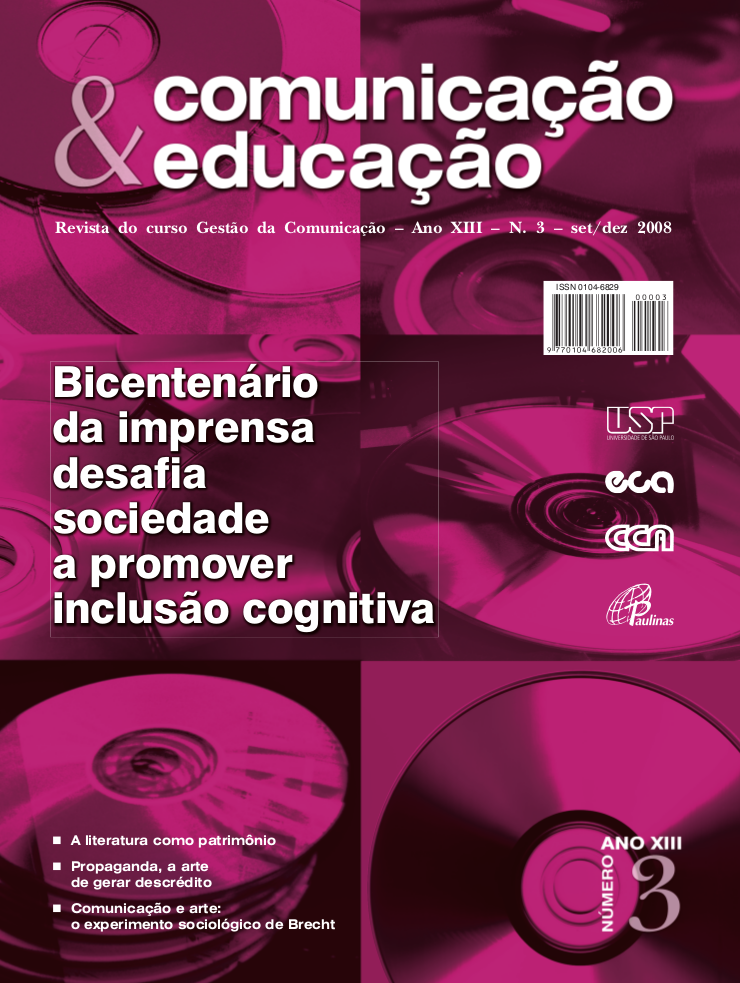Comunication and art: the sociological experiment of Brecht
DOI:
https://doi.org/10.11606/issn.2316-9125.v13i3p13-18Keywords:
theater, cinema, commodity, intellectual property, communications.Abstract
The commercial success of the staging of The Threepenny Opera caused a powerful film company interested in shooting it to contact Brecht. He accepts the proposal, but imposes a condition: that he would write the adaptation for the cinema. The film company accepts it, and Brecht then writes a screenplay from which he suppresses the commercial elements that had been responsible for the play’s success and develops as much as possible the revolutionary aspects of the text. The issue ends up in court. Brecht seizes the occasion to launch a public debate about the relationships between theater and cinema, art and commodityand, mainly, about the property right of the work of art.
Downloads
Downloads
Published
Issue
Section
License
I authorize the publication of the submitted article and soon the copyrights to the magazine, in the printed and electronic version, if it is approved after the evaluation of the reviewers.
I understand that readers may use this article without prior request, provided the source and authorship are mentioned. Readers are not authorized to use this article for reproduction, in whole or in part, for commercial purposes.

































